(Ecological farmers tie rakhis to trees, cattle, wells, and other natural elements to acknowledge their importance in sustainable agriculture)
On August 9, Jeevit Mati Kisan Samiti, Jamui, and Greenpeace India together celebrated Bihar Earth Day. It was an occasion to strengthen the community’s commitment towards the environment and various other components of the earth. Ecological farmers across Kedia and Tari Dabil villages in Jamui tied rakhi (a thread which is believed to represent love and sublime sentiments across India) to various elements of the earth to express their respect and gratitude towards them. They also performed similar rituals with trees, wells, composting pits, cattle, and traditional farm equipment.
It is worth acknowledging that farming communities of Kedia and Tari Dabil have often raised to the occasion and build solidarity within and outside communities. When the COVID-19 pandemic brought the world to its knees and the food systems were drastically affected, Kedia, Bihar’s first organic village and Tari Dabil village resolved to take up the task of feeding some of the impacted communities in close proximity.
Every year on this day, the village celebrates Bihar Earth Day as a joyous event that brings people together. Unfortunately this year due to COVID-19 we could not organize any formal event. “But of course, we cannot ignore this important day either. Within our limited capacities and under strict COVID protocols, the celebrations took place,” said Nilam Kumari, a young women farmer from Kedia.
The pictures of the Bihar Earth Day are enough reflection in itself how the communities in Kedia and Tari Dabil have not only adapted to the sustainable living but are also committed to extending the paradigm of sustainability.
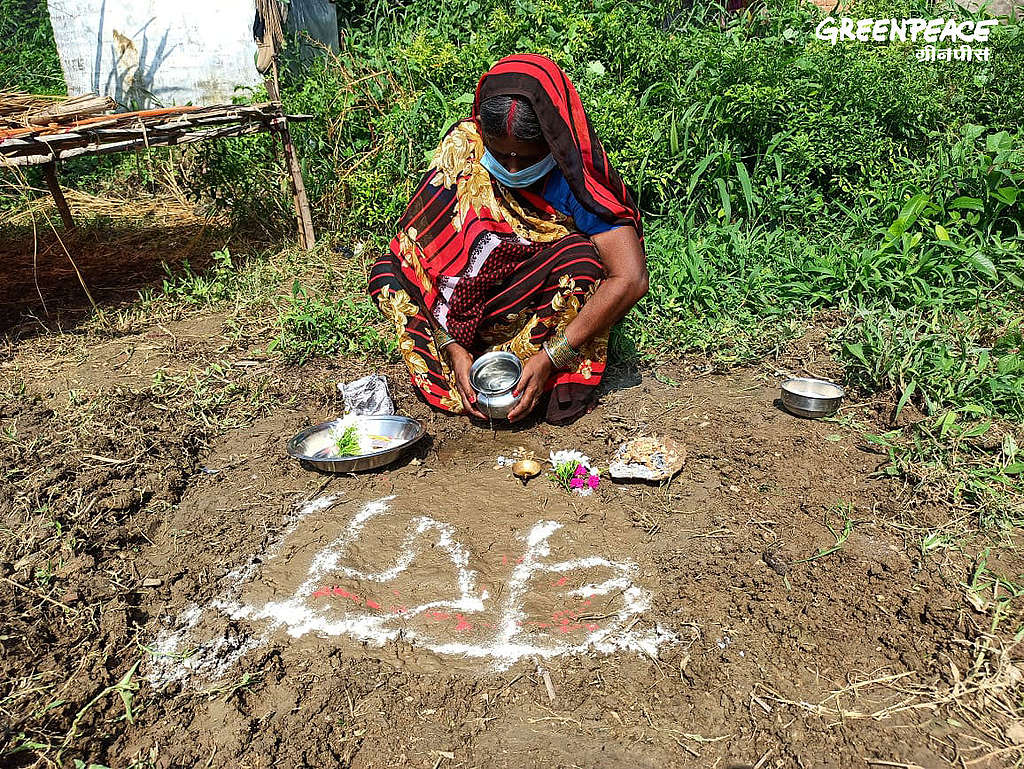
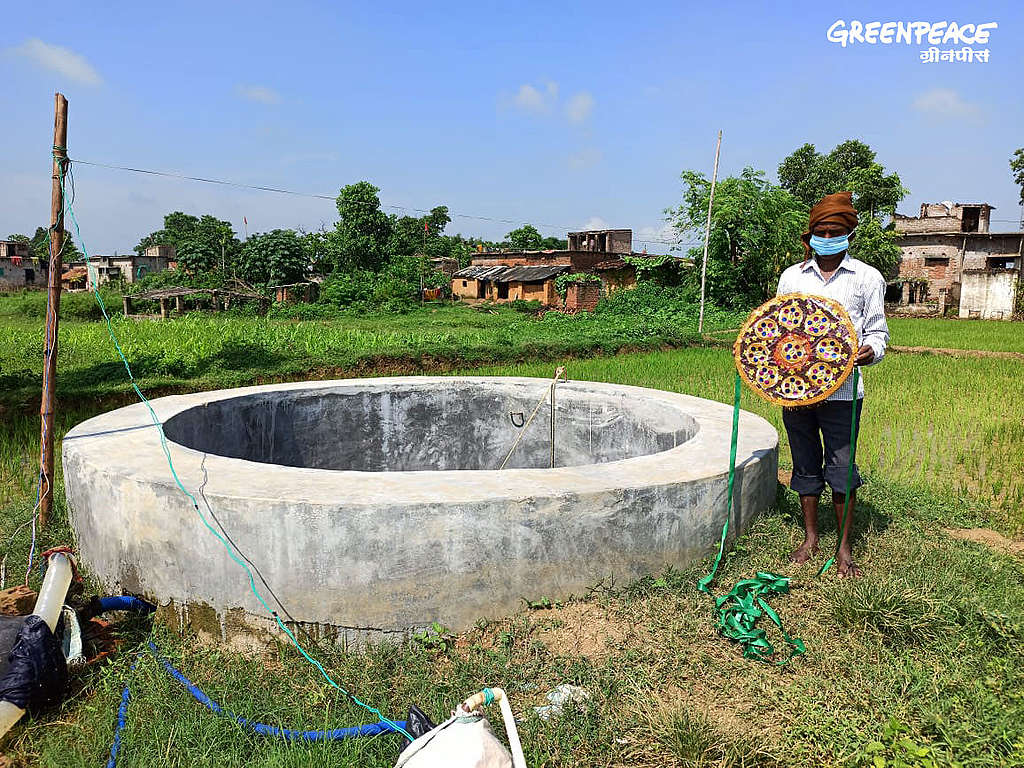
An ecological farmer prepares to tie rakhi around the well (Picture credit:Santosh Kumar Suman)
Organic farming in Kedia has increased the soil organic carbon and has improved water levels in the village. The community has put a ban on using borewells and irrigation is done by more than 60 wells in the village.
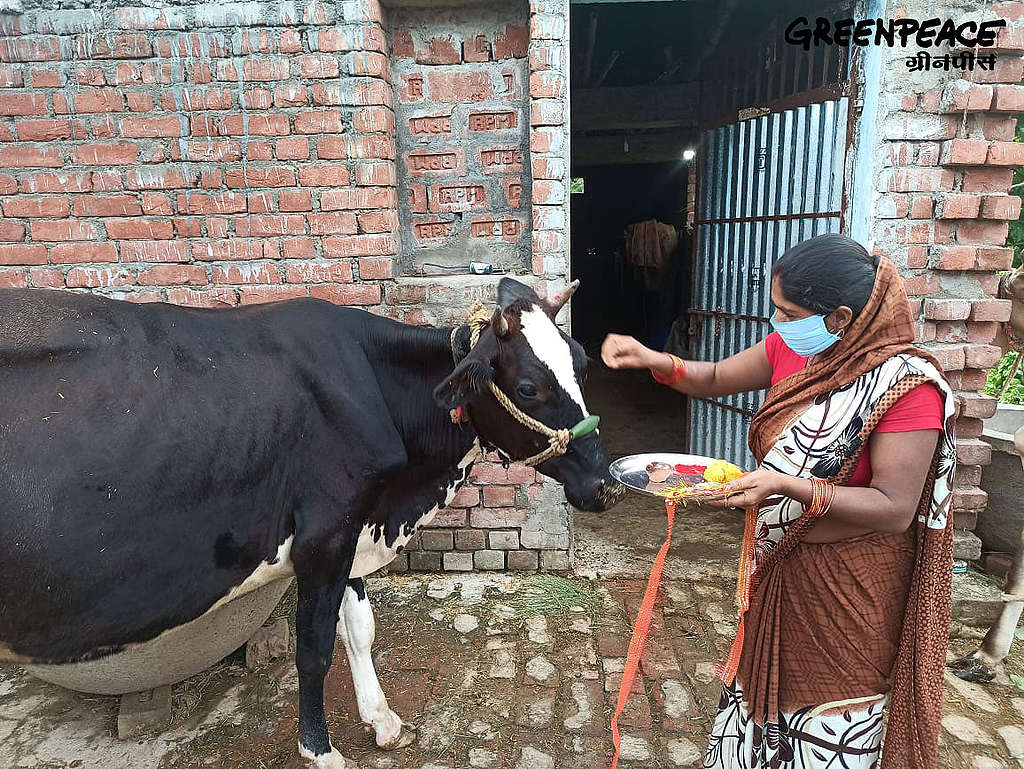
A women farmer shows her gratitude and pays her respects to the cattle and the ecosystem that supports them
(Picture Credit: Santosh Suman)
Cattle play an important role in organic farming. Cattle dung is first used to extract biogas and then in preparing compost for their fields.
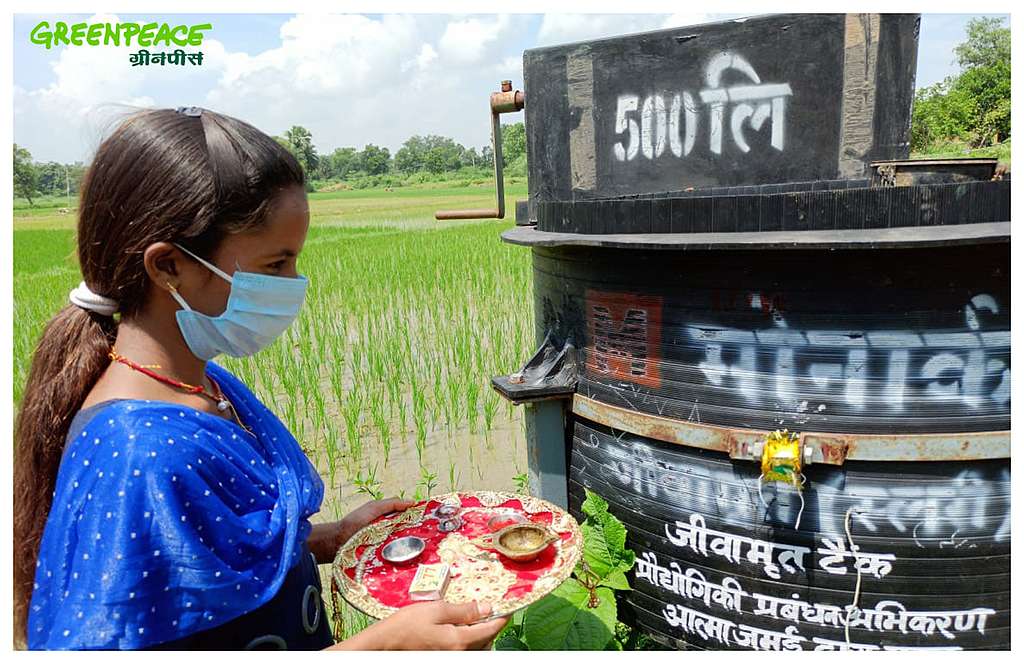
A little girl tying rakhi to the Jeevamrut slurry tank (Picture Credit: Santosh Suman)
The concoction of cow dung, cow urine, jaggery, and flour, known as Jeevamrit is used as a soil health booster. It increases the microbial activities in the soil which in turn enhances the nutritional value of the soil.
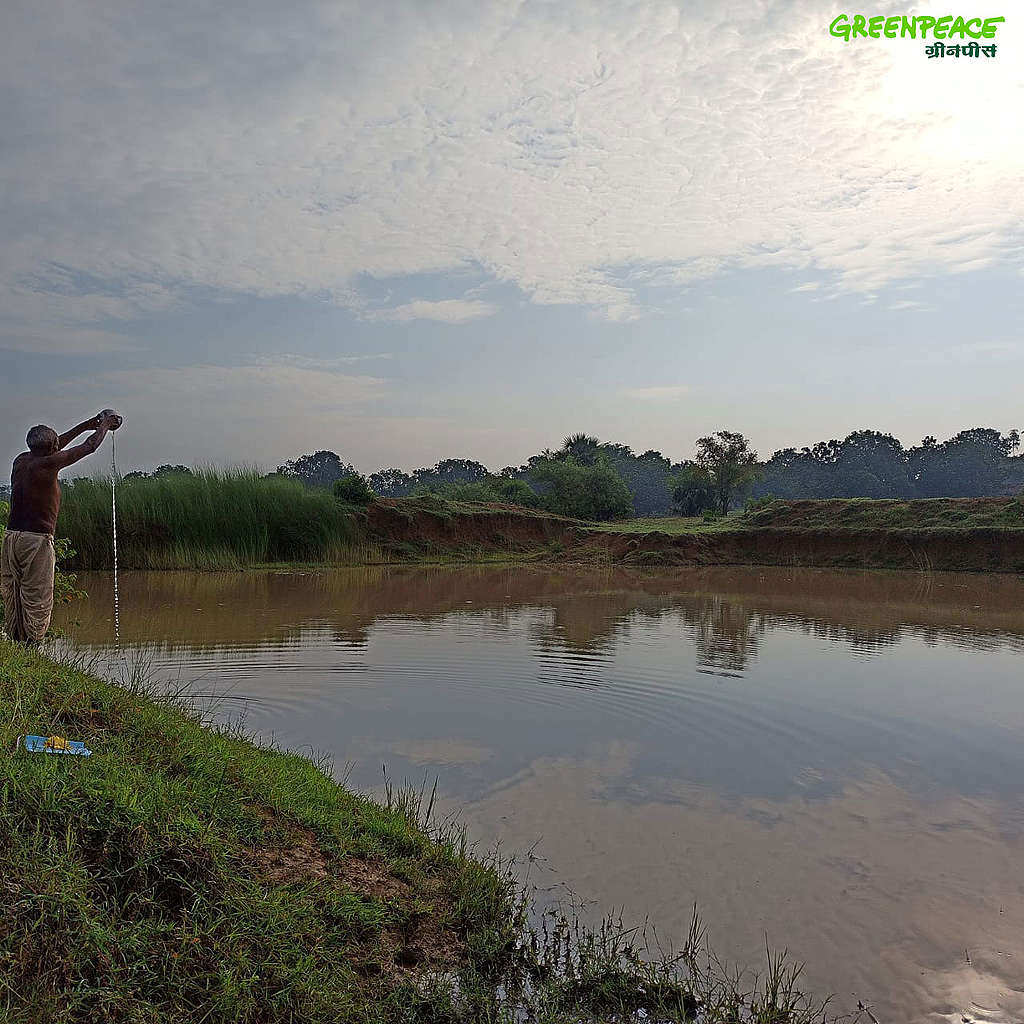
An aged farmer offers tributes to the sun and the water canal (Picture Credit: Santosh Suman)
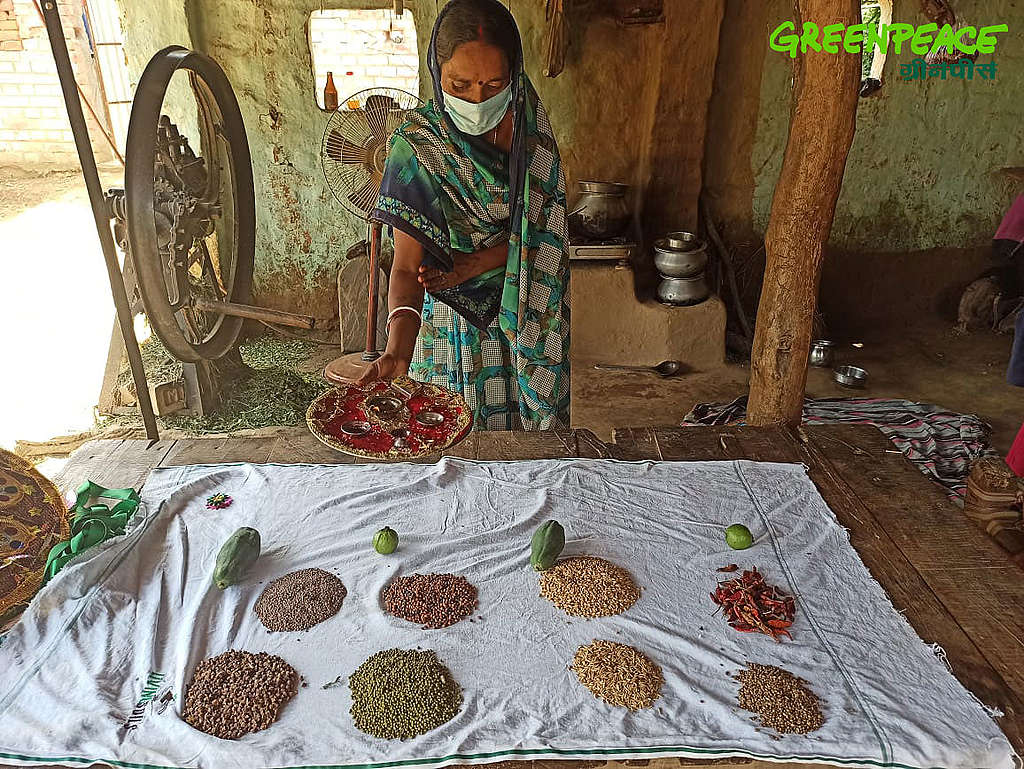
A women farmer paying her respects to the ecological produce (Picture Credit: Santosh Suman)
Neelam explains further, “we consider the earth and life in all its diversity, recognizing its value and importance as one family. We believe that our lives, livelihoods, and future are intricately connected with other life forms. Therefore, we will be directly impacted if other life forms are not flourishing. We are celebrating this event to reassert our pledge of not using any technology, practices or agri inputs which has any potential to harm the web of life, we are a small part of.”
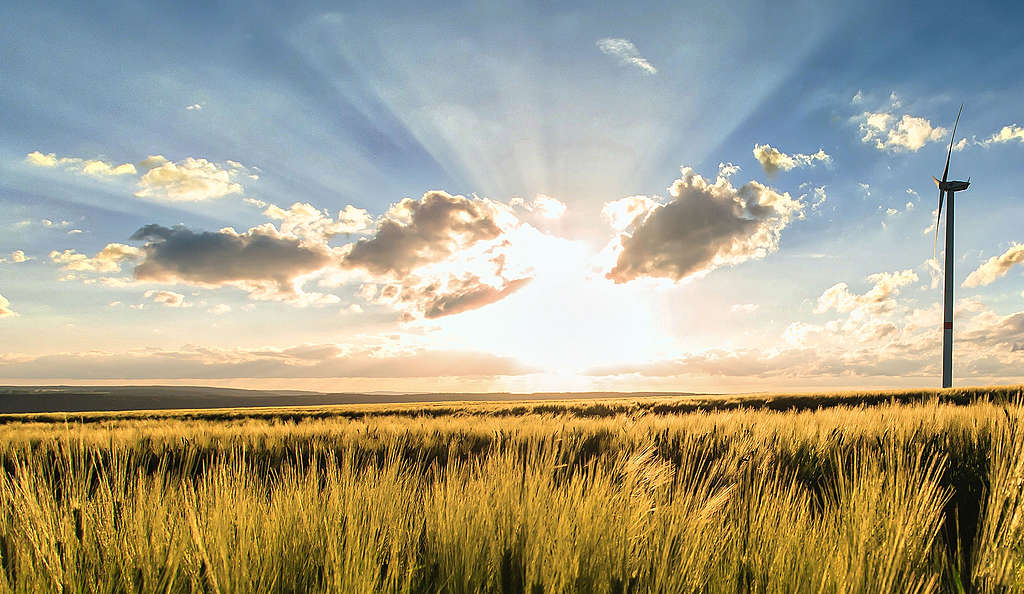
The COVID19 crisis has revealed the vulnerability of our food, economic, healthcare, and welfare systems. We have the power to move humanity towards a better future.
